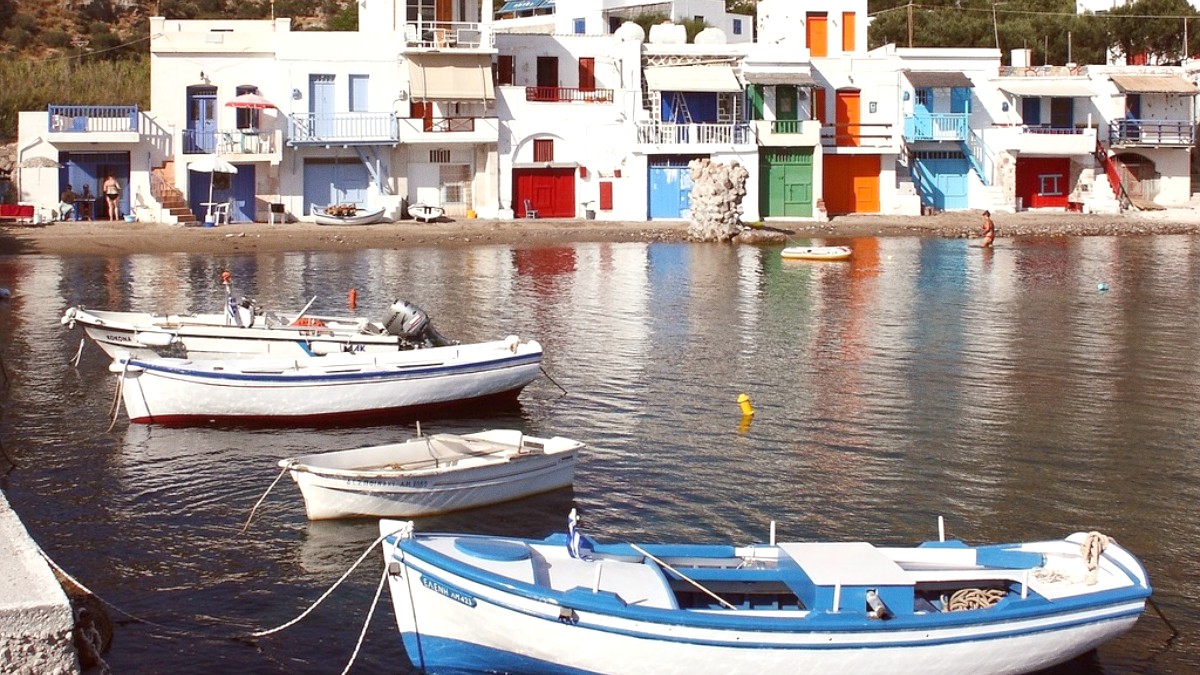
Greece
Milos forms part of the Natura 2000 network. This safeguards the island's unique geology, including its volcanic formations, diverse flora and fauna. These include endemic species like the Milos viper and the critically endangered Mediterranean monk seal. Respect designated protected zones and avoid disturbing wildlife or vegetation.
Minimize your plastic use by bringing a reusable water bottle, coffee cup, and shopping bag. Dispose of your trash properly in designated bins. Inquire at your accommodation about recycling options, as public recycling bins may be limited. Avoid littering, especially on beaches and in natural areas.
Water presents a precious and often scarce resource on Greek islands. Be mindful of your water usage. Take shorter showers, reuse towels, and turn off taps when not in use. Some accommodations implement water-saving measures; support these efforts.
Engage respectfully with Milos' rich culture.
Support local businesses that preserve traditional architecture, crafts, and culinary traditions. When choosing souvenirs, prioritize authentic, handmade items.
Learn a few basic Greek phrases. A simple 'Efharisto' (thank you) goes a long way. Engage politely with locals. Remember you are a guest.
Generally, public spaces are fine for photography. Ask permission before photographing individuals, especially children.
When visiting churches or monasteries, dress modestly (shoulders and knees covered). Remain quiet and respectful inside sacred spaces.
Look for hotels and guesthouses highlighting sustainable practices. Ecobnb offers eco-friendly options.
Explore EcobnbConsider offsetting the carbon footprint of your journeys. Terrapass provides carbon offset programs.
Offset CarbonYour choices during travel contribute to the well-being of Milos and its residents. Consider ethical operators like G Adventures for tours.
Your spending choices directly benefit the local economy.
Choose locally owned guesthouses to support island residents directly.
Dine at family-run tavernas for authentic meals and local support.
Hire local guides for tours to ensure your money circulates within the community.
Frequent local bakeries for fresh bread and pastries.
Shop at local grocery stores for your daily needs.
Enjoy coffee and snacks at local cafes to support the island's unique character.